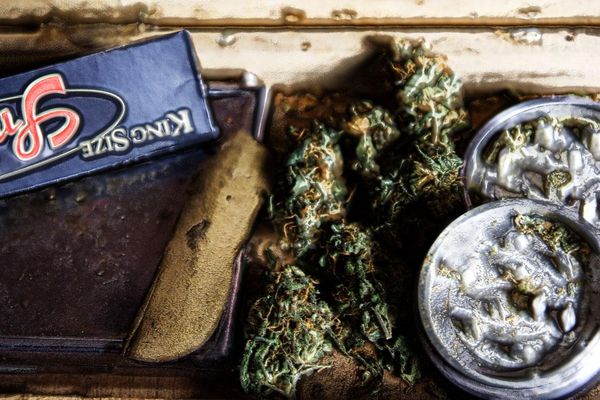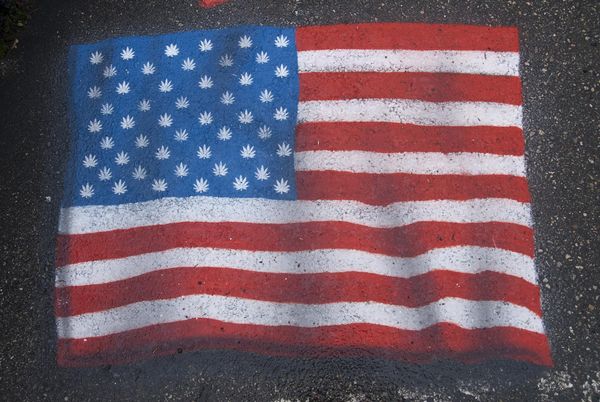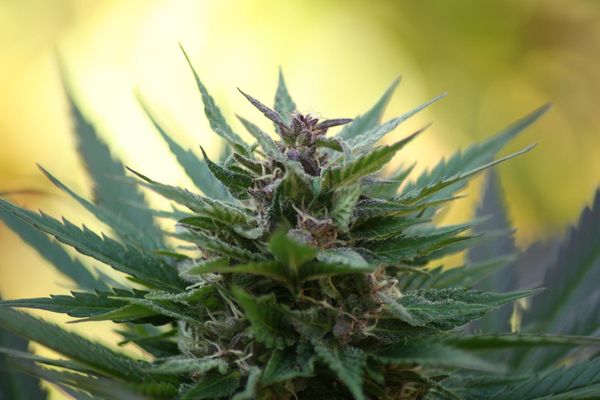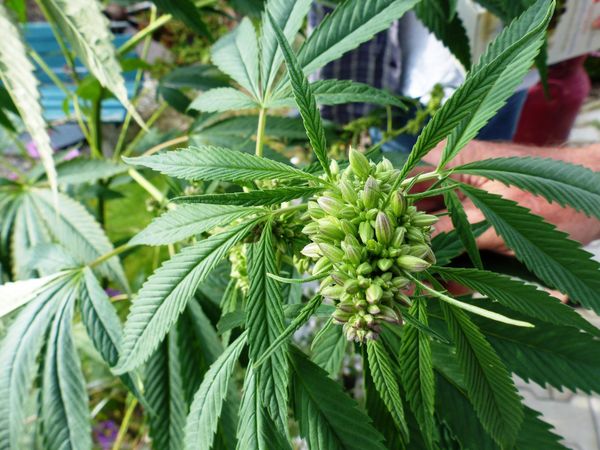- Alaska legalised marijuana for recreational use a few months ago, and now the state has created a control board that will be in charge of drafting the laws and regulations related to the cannabis sector. The new Board will offer advice on road safety, determine the amount of marijuana that one can possess, and where it can be consumed. We share with you everything about marijuana in one of the harshest locations on the planet, with a cannabis consumption rate doubling that of the rest of North America.

On 4 November 2014 the people of Alaska voted, 53% to 47%, to end decades of ineffective cannabis prohibition and replace it with a system under which this plant is taxed and regulated, like alcohol is. Last February Alaska definitively legalised the consumption of cannabis for recreational use, becoming the third US state to do so, after Colorado and Washington, to be followed by Oregon. Now, a few months later, a Control Board has been created to take the initiative in drafting the laws related to marijuana in the state.
These laws will not only buoy the Alaskan economy, but also improve public safety and keep millions of dollars in cannabis seeds sales from being transacted on the black market. It will also guarantee that cannabis is properly cultivated, packaged and labelled, and that its sale is carefully monitored.
Signed by Governor Bill Walker, the project will support the law approved in February by addressing a broad range of issues, from the amount of THC allowed in cannabis foods, to the types of license for certain businesses, to questions related to safety and the protection of both consumers and non-consumers. All this thanks to funds over 1.5 million USD in funding for this first stage.
Walker knows that this Marijuana Control Board, attached and answerable to the current supervisory body, the Alcoholic Beverage Control Board, has an important task ahead of it. At this time it is looking for possible members in the medical and public safety sectors, rural areas, and in the marijuana industry. This body, in addition, will have sufficient authority to close those companies that act illegally.

The law features a series of notable dispositions, for both residents and visitors. The first thing one ought to know about personal use in Alaska is that, for many, a license will be necessary to buy and sell marijuana. Those who do not have one will be able to possess and harvest only up to 113 grams of marijuana (4 ounces) at home, as legislators believe that amounts greater than this transcend personal use. That amount will be calculated as harvested cannabis, or in the form of seeds, leaves and flowers.
Of course, facilitating a minor's access to cannabis is completely illegal, and only those ages 21 or older will be able to consume and possess cannabis products, and grow up to six plants (as long as only three of them are mature), and to transport up to 28 grams (1 ounce), or give another user the same amount or less.
The law also prohibits any type of public consumption, punishable with a 100-dollar fine. This means that it is illegal to consume cannabis at places like schools, entertainment facilities, companies, playgrounds, sidewalks or public pathways. Moreover, as marijuana is still illegal at the federal level, its consumption will not be permitted at national parks, forests and other official areas.

Marijuana consumption, thus, is restricted to private property−although even this right may be denied when the owners of a building have established policies prohibiting its consumption. It is also illegal to leave Alaska carrying any cannabis product, as once one crosses border the federal government can intervene, and federal legislation is far behind state law when it comes to marijuana.
With regards to the private sphere, legislators indicate that smoking at home−whether tobacco or cannabis−can affect third parties, so they recommend always doing so while limiting others' unwilling exposure. Since the change in marijuana's legal status on 24 February more complaints have been received from citizens regarding the smoke that filters through apartments, seriously annoying and causing problems for some renters, and they want to put an end to this. The owners of private businesses also have 90 days to update their non-smoking signs to include marijuana, along with other signs indicating the prohibition of cigarettes.
Marijuana and road safety
Neither will Alaskans be able to consume marijuana while operating any type of motor vehicle (cars, boats or airplanes, or any other vehicle with a motor). Driving while under the influence shall be considered illegal, regardless of the substance affecting the driver, including marijuana, in addition to alcohol.
Consuming cannabis before driving could result in one's arrest, even if consumed for therapeutic reasons. The law, specifically, states that if the plant has been consumed one should not “drive, or ride a bicycle,” pointing out that consumption can affect reaction times, short-term memory, hand-eye coordination, concentration and perceptions of time and distance. Thus, legislators recommend using alternative means of transport that the consumer does not need to control.

In spite of this, it should be remembered that each city and community can also approve laws, whether stricter or more permissive, which it will also be compulsory to observe. In order to understand what is allowed or prohibited, citizens should review local ordinances and regulations. In any case, it will be in 2016 when the Control Board issues the first licenses for the sale or purchase of marijuana. Until then its purchase and sale will be illegal and could constitute a crime.
Alaska, though a Republican stronghold, has always been a state known for its strong individualism; conservative, but with a decidedly libertarian vein that has pushed it towards the vanguard with reference to cannabis legalisation. It was one of the first states to decriminalise marijuana, in 1975 and in 1998, voters also legalised cannabis for medicinal purposes. In fact, it features a law under its Constitution on residents' right to privacy, as a result of which marijuana consumption has always remained somewhat protected.
These constitutional laws, however, are extremely complex and confusing. Hence, the new state regulation on cannabis will clarify things in a scenario that by 2017, the first year of complete legalisation, augurs a recreational marijuana market for adults in Alaska worth more than 250 million dollars (not including related products and equipment), with the final frontier state to receive around 10% in taxes and fees.



Comments from our readers
There are no comments yet. Would you like to be the first?
Leave a comment!Did you like this post?
Your opinion about our seeds is very important to us and can help other users a lot (your email address won't be made public).